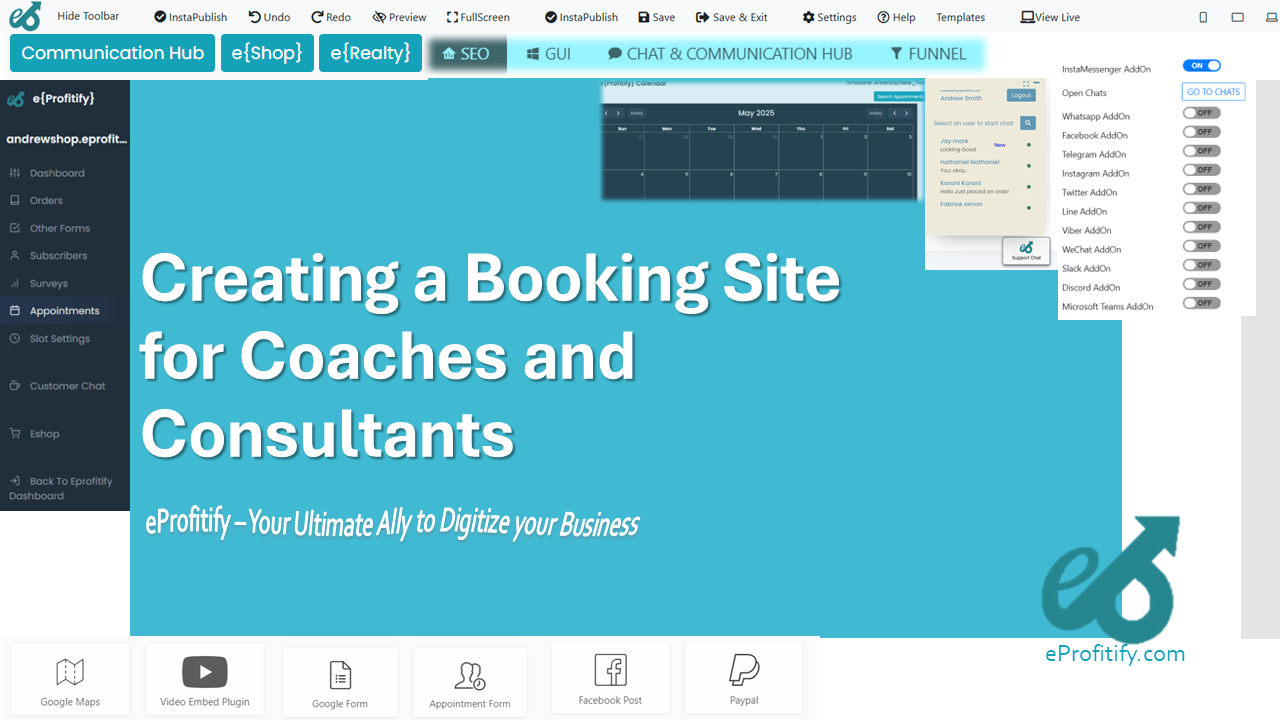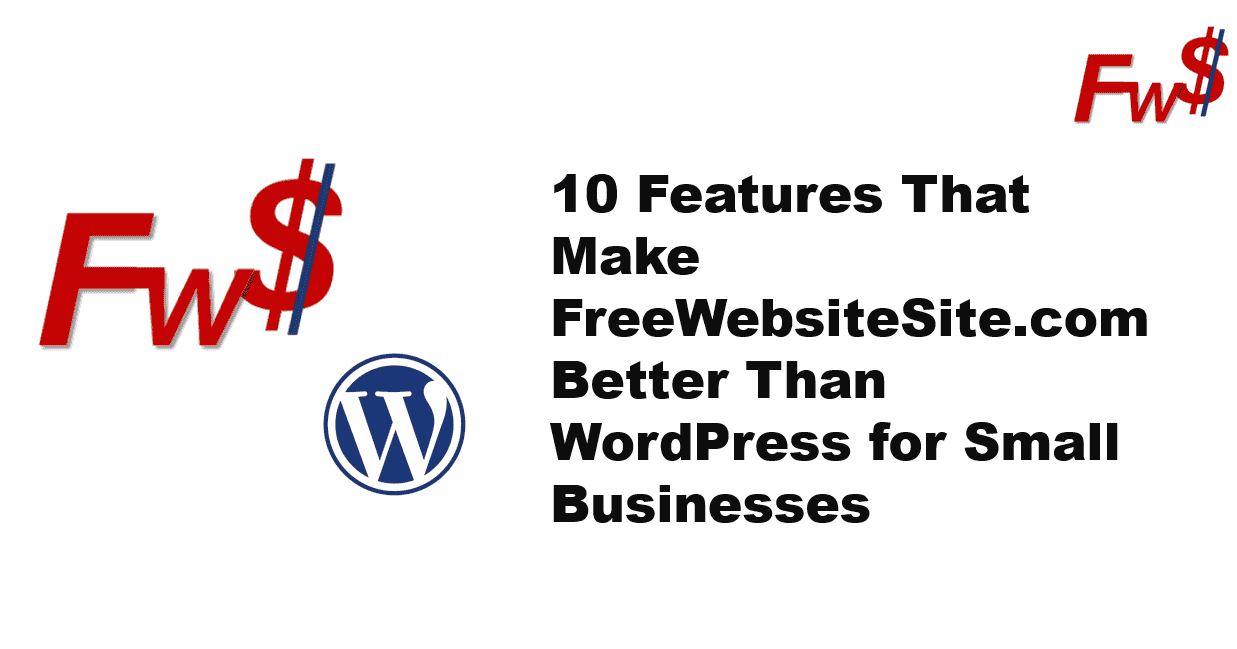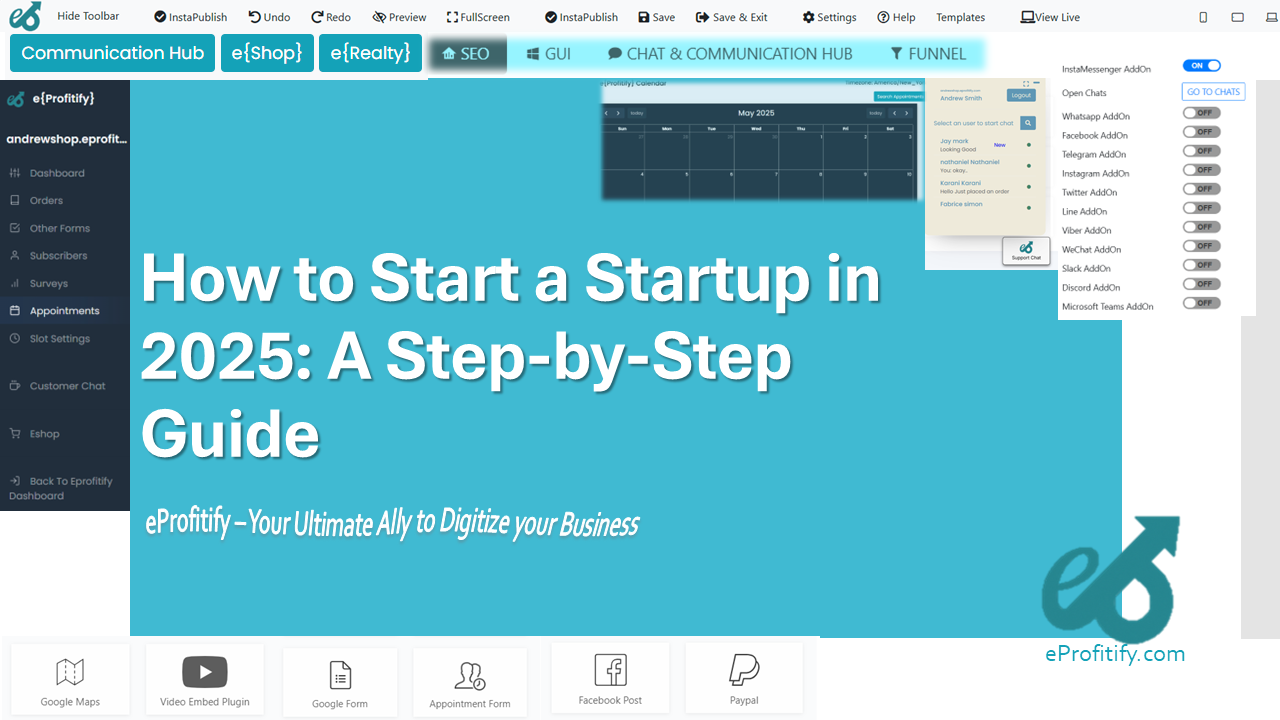The Best CMS Options for Founders Without Tech Skills
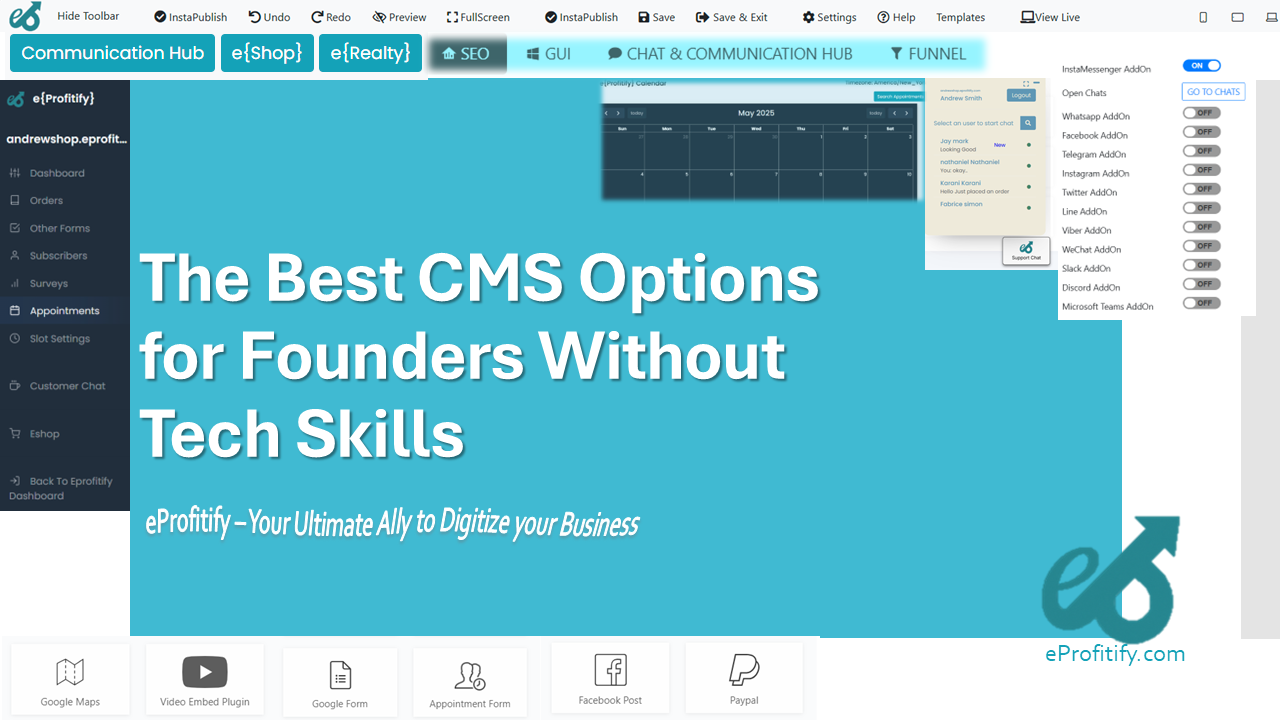
The Best CMS Options for Founders Without Tech Skills
For founders lacking technical expertise, choosing the right Content Management System (CMS) is critical. A CMS serves as the backbone of a website, enabling users to create, manage, and modify content without coding. With 43.1% of all websites powered by CMS platforms (W3Techs, 2023), these tools democratize web publishing. Below, we explore the top CMS options tailored for non-technical founders, backed by statistics and insights. We’ll also highlight eProfitify, an all-in-one platform revolutionizing website management with features like instant messaging, CRM, and ecommerce.
Key Considerations for Non-Tech Founders
Before diving into CMS options, consider these factors:
- Ease of Use: Intuitive drag-and-drop interfaces.
- Affordability: Pricing aligned with budget constraints.
- Scalability: Ability to grow with your business.
- Built-in Features: Tools for marketing, sales, and customer engagement.
Top CMS Platforms for Non-Technical Users
1. WordPress.com
WordPress.com (the hosted version of WordPress) powers 43% of all CMS-based websites. Unlike WordPress.org, it requires no coding or hosting setup.
- Key Features: Pre-built templates, SEO tools, and plugins.
- Pros: Extensive customization via plugins like WooCommerce.
- Cons: Advanced features require paid plans (starting at $4/month).
- Stats: 22% of the top 10K websites use WordPress (BuiltWith, 2023).
2. Wix
Wix boasts over 200 million users globally, thanks to its drag-and-drop simplicity.
- Key Features: 800+ templates, AI-powered design tools, and built-in analytics.
- Pros: Free plan available; ideal for small businesses and portfolios.
- Cons: Limited customization post-launch.
- Stats: Wix holds 3.6% of the CMS market (W3Techs, 2023).
3. Squarespace
A favorite for aesthetics, Squarespace combines design elegance with user-friendliness.
- Key Features: Award-winning templates, integrated ecommerce, and SEO tools.
- Pros: All-in-one platform for blogs, stores, and portfolios.
- Cons: No free plan; starts at $16/month.
- Stats: Powers 2.7% of CMS-based websites (BuiltWith, 2023).
4. Shopify
For ecommerce founders, Shopify dominates with a 10% share of the global ecommerce platform market.
- Key Features: Inventory management, payment gateways, and multichannel sales.
- Pros: Scalable for enterprises; 6000+ apps in its ecosystem.
- Cons: Transaction fees on third-party gateways.
- Stats: Over 4.5 million websites use Shopify (BuiltWith, 2023).
5. Webflow
Webflow merges design freedom with CMS functionality, attracting 3.5 million users.
- Key Features: Visual CSS editing, CMS databases, and responsive design.
- Pros: Granular control without coding.
- Cons: Steeper learning curve than Wix or Squarespace.
- Stats: Used by Adobe, Dell, and Harvard (Webflow, 2023).
6. Duda
Duda targets agencies and small businesses with its collaborative tools.
- Key Features: Client management, widgets, and multilingual support.
- Pros: White-label options for agencies.
- Cons: Limited third-party integrations.
- Stats: Hosts 1.3 million websites (Duda, 2023).
eProfitify: The All-in-One Solution for Founders
While the above platforms excel in specific niches, eProfitify emerges as a standout for founders seeking a unified toolkit. Designed for non-technical users, it integrates website publishing with business management features, eliminating the need for multiple tools.
Why eProfitify Stands Out
- Instant Messaging: Built-in chat for real-time customer communication.
- Appointment Management: Schedule bookings via calendars and automated reminders.
- Ecommerce Tools: Product listings, payment processing, and inventory tracking.
- CRM Integration: Track leads, manage pipelines, and automate follow-ups.
- Analytics Dashboard: Monitor traffic, sales, and customer behavior in one place.
Statistics Highlighting Impact:
- Businesses using eProfitify report a 40% reduction in operational costs by consolidating tools (eProfitify Case Studies, 2023).
- Users experience a 30% increase in customer engagement through its integrated CRM and messaging features.
Use Cases
- Service-Based Businesses: Use appointment scheduling and CRM to manage consultations.
- Online Stores: Leverage ecommerce tools and analytics to optimize sales.
- Agencies: Collaborate with clients via white-label dashboards and project tracking.
Comparison Table: Top CMS Platforms
| CMS | Pricing (Basic) | Best For | Unique Feature |
|---|---|---|---|
| WordPress.com | $4/month | Blogs & SMEs | Plugin ecosystem |
| Wix | Free (ads) | Small businesses | AI design tools |
| Squarespace | $16/month | Creative portfolios | Stunning templates |
| Shopify | $39/month | Ecommerce | Sales & inventory tools |
| Webflow | $14/month | Design-heavy sites | Visual CSS editing |
| Duda | $14/month | Agencies | Client collaboration |
| eProfitify | Custom pricing | All-in-one needs | CRM + messaging integration |
Conclusion
For founders without tech skills, CMS platforms like WordPress.com, Wix, and Shopify offer simplicity and scalability. However, eProfitify transcends traditional CMS boundaries by combining website management with CRM, ecommerce, and communication tools. As 72% of consumers expect instant engagement (Salesforce, 2023), integrating these features streamlines operations and boosts growth. Whether launching a blog, store, or service, choosing the right CMS empowers founders to focus on their vision—not the technical details.
By leveraging platforms like eProfitify, entrepreneurs gain a competitive edge, transforming their digital presence into a dynamic, revenue-generating asset.

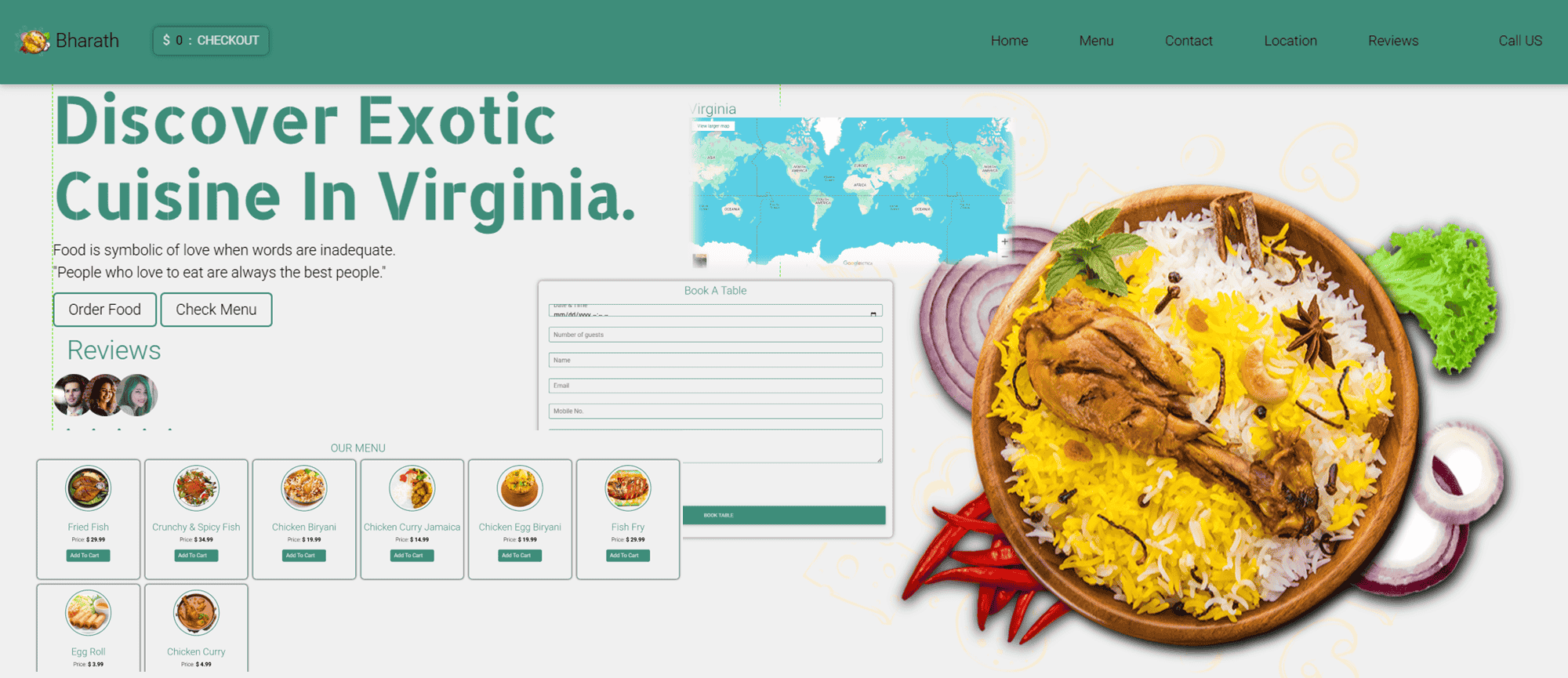

.png)


